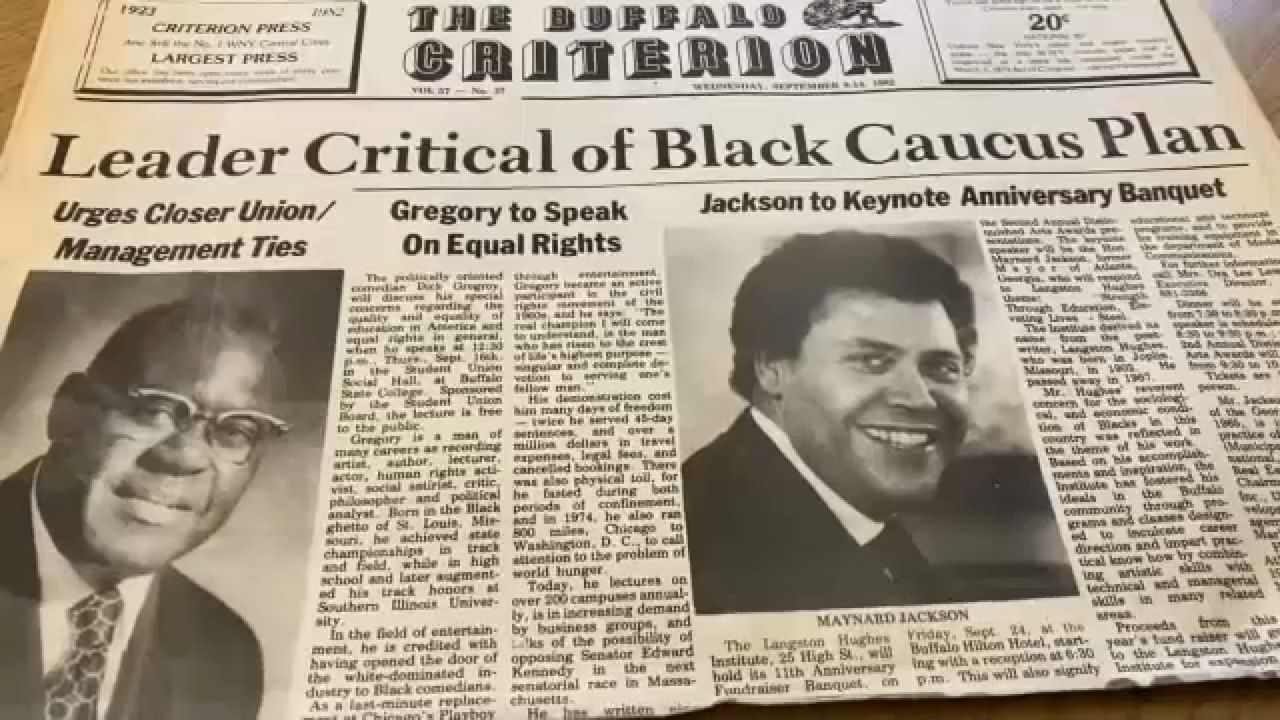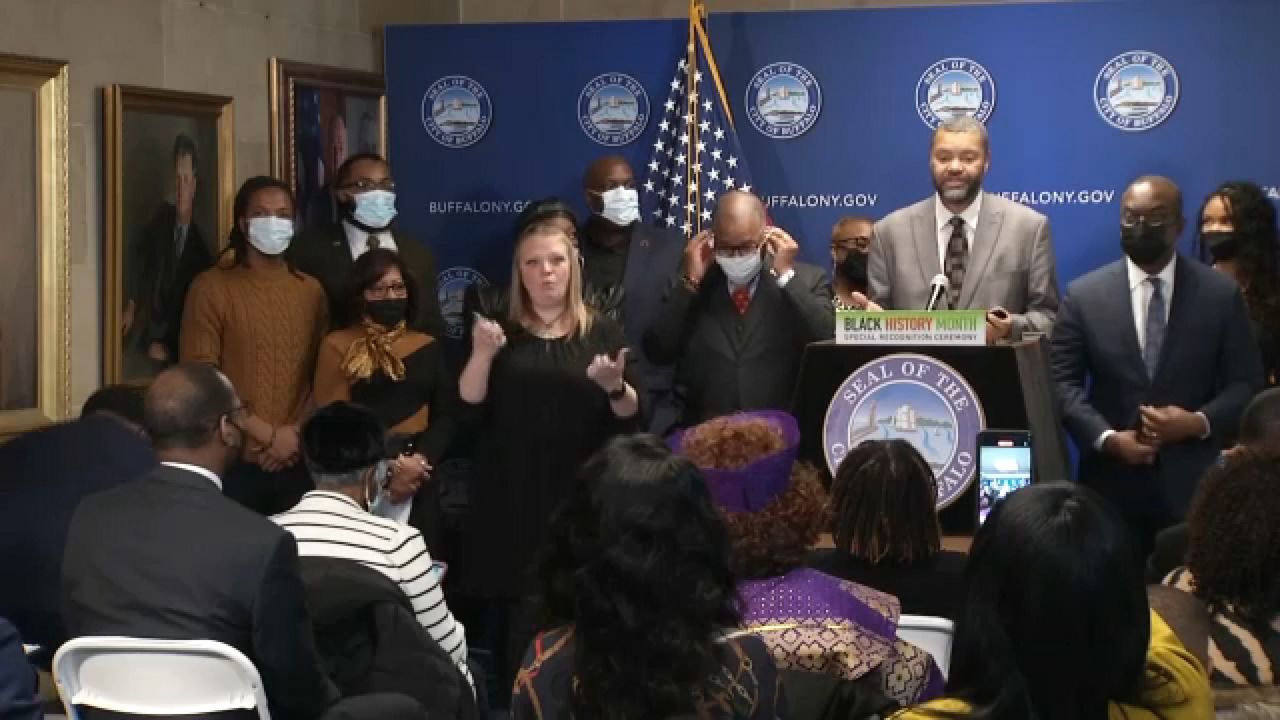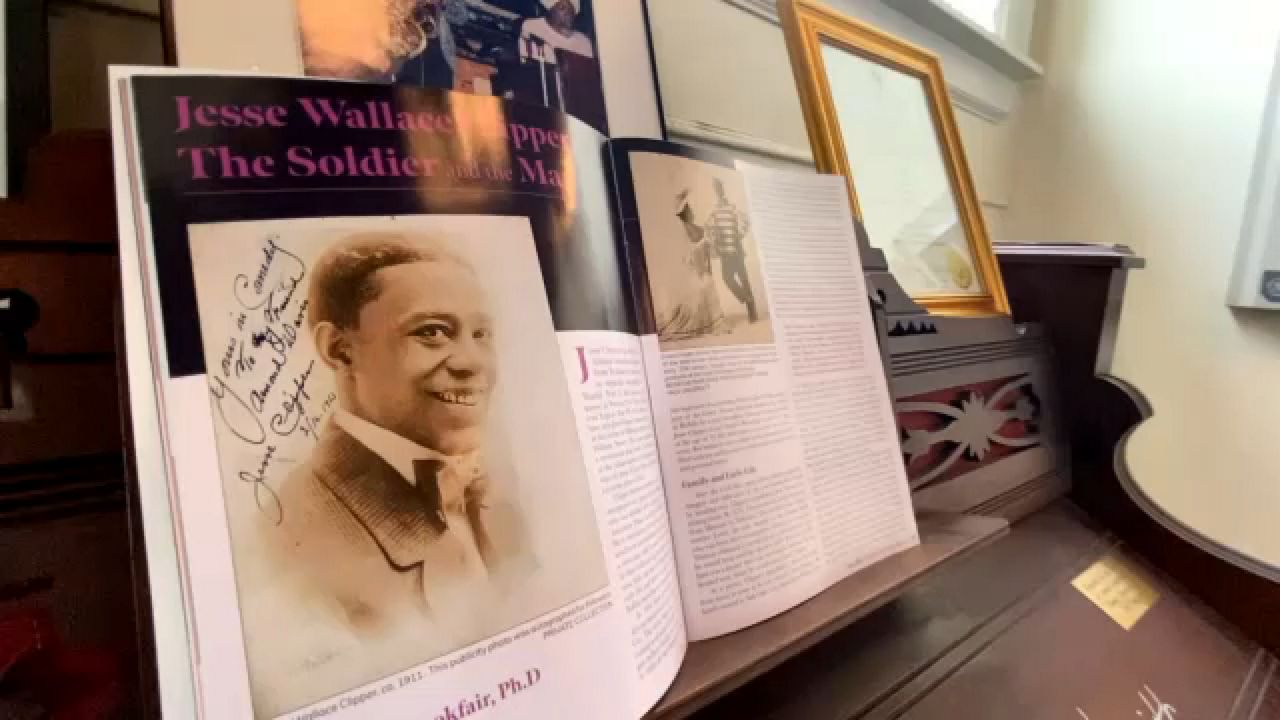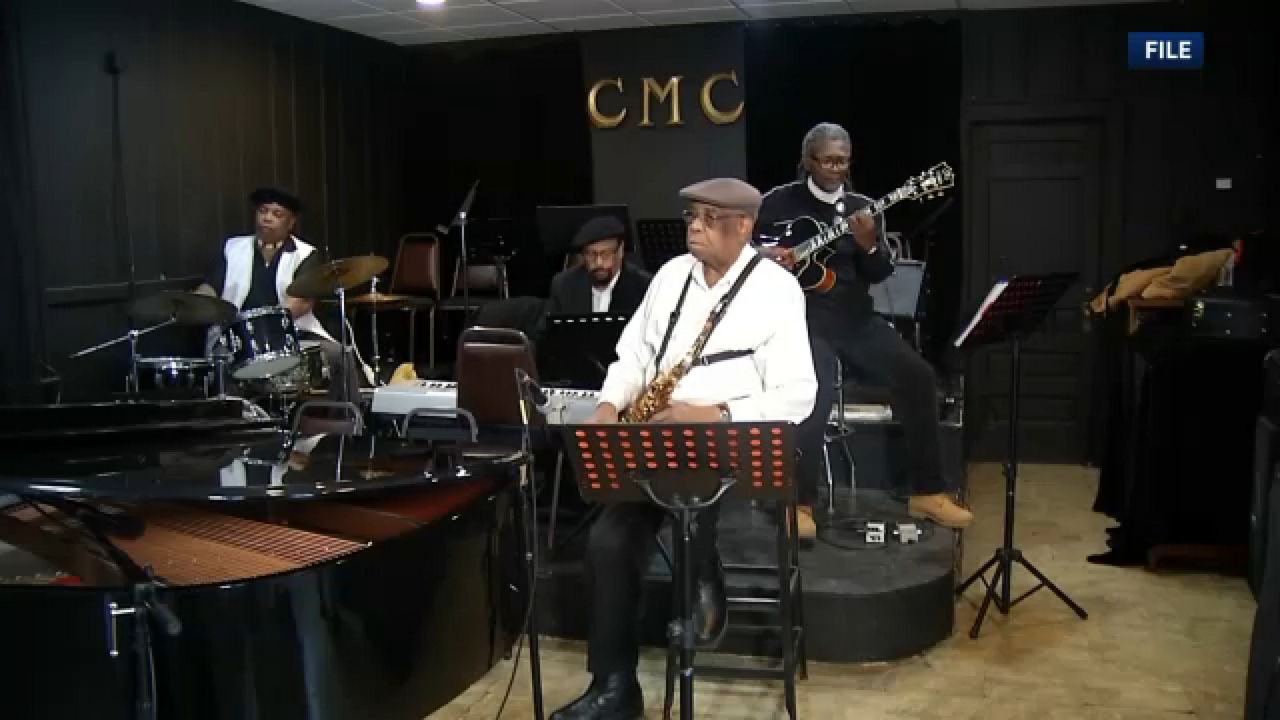BUFFALO, N.Y. — When looking at Black history throughout the nation, there are many names with ties to the city of Buffalo.
The first non-native Buffalonian was African-American.
His name was Joseph “Black Joe” Hodge and he was the first settler to call Buffalo home. His contributions helped build Buffalo into the city it is today.
"This is only a 20-page book, but it took me six months to write the book because of all the research involved," said Historian Eva M. Doyle.
Doyle wrote the book, her first, 40 years ago when she was an educator to teach her students about local Black history. It’s when you get to page 11 that you’ll see the name Joseph Hodge. What makes it especially odd is that this name isn’t known throughout all of the Queen City is because Hodge is widely believed to be the first non-indigenous settler in Buffalo — before it was even Buffalo.
"He was the first non-white settler," said Doyle. "He was very important to the early white settlers because he knew the language of the Seneca Nation."
While certain aspects of Black Joe’s life vary according to modern and historical accounts, certain details are consistent. Hodge is often described as a runaway slave who was captured by members of the Seneca Nation during the Revolutionary War. He befriended the Natives, even learning to speak their language. He was also an entrepreneur, working as a trader, a bartender and an interpreter between the Seneca tribe and traveling settlers. Because of him, some of buffalo’s first businesses were Black-owned businesses.
"He really helped to establish the city of Buffalo with the things that he did as a businessman," Doyle said. "He was an integral part of shaping the city of Buffalo."
He’s even believed to have made history elsewhere as the first Black man to pass through Cleveland, Ohio as a guide for Moses Cleaveland, the surveyor who founded the city named for him. But Buffalo was his home for most of his life, and the grounds where he walked and lived looked vastly different then, but extremely familiar today to Buffalo residents, beneath the I-190 overpass between the Explore and More Museum and Seneca One Tower.
Despite a remarkable life, even more scarce than Black Joe’s biography are tributes to him. There are historical markers throughout the African American Heritage Corridor in homage to local Black History, and there’s even one for Black Joe, but it’s at Sunset Bay in Irving, New York.
Doyle is advocating for one to be in the city of Buffalo, or even another form of commemoration.
"If you have a statue or a mural, it will stay in the mind of people for a long, long time," said Doyle. "So that’s my suggestion and I hope that somebody’s listening, or hearing this or seeing this because I think it’s past time that we honor and respect Joseph Hodge, who did so much to lay the groundwork for the city of Buffalo."
Until that day comes, there are remnants of the land that Black Joe built wherever you look, from the city’s thriving businesses to the diverse languages spoken throughout the land and bridged gaps that allow us all to learn together.









